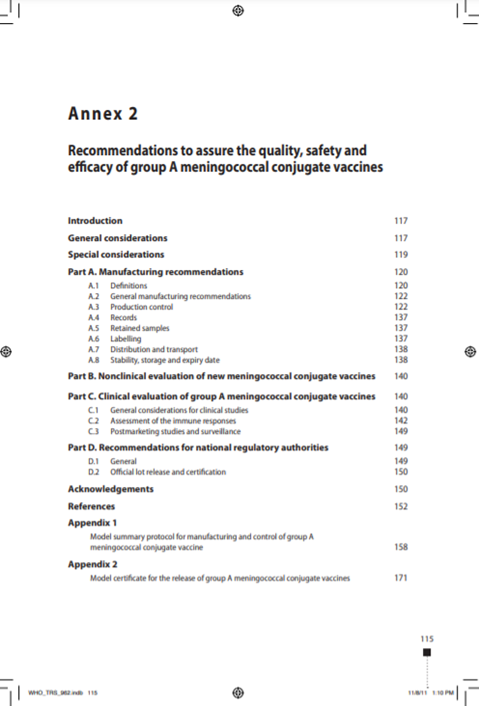Recommendations to assure the quality, safety and efficacy of Group A Meningococcal Conjugate vaccines, Annex 2, TRS No 962

Overview
Recommendations (formerly known as Requirements) for meningococcal polysaccharide vaccines were adopted by the WHO Expert Committee on Biological Standardization in 1976 (1) and amended in 1978 and 1981 (2, 3). In clinical studies these vaccines have been shown to have an efficacy of around 90% and have proved to be highly effective in public health interventions (4). Nevertheless, their modest ability to elicit protective responses in young infants (aged < 2 years) and their inability to induce immunological memory has prevented their inclusion in routine childhood immunization programmes.
The success of the MenC conjugate vaccines prompted the development of conjugate vaccines for other meningococcal capsular polysaccharides. These include a tetravalent A, C, Y, W135 conjugate vaccine recently licensed in some countries and a monovalent group A meningococcal (MenA) conjugate vaccine currently undergoing clinical trial. As a result, there is a need for recommendations to assure the quality, safety and efficacy of MenA conjugates, which may be used as monovalent vaccines or may be included as components of combination vaccines.
No international reference materials were available for quality testing of group A meningococcal conjugate vaccines at the time of preparing this document. No formally established international reference materials that would allow the standardization of assays for immune responses to group A meningococcal conjugate vaccines are currently available
Full version of the WHO Technical Report Series N° 962
